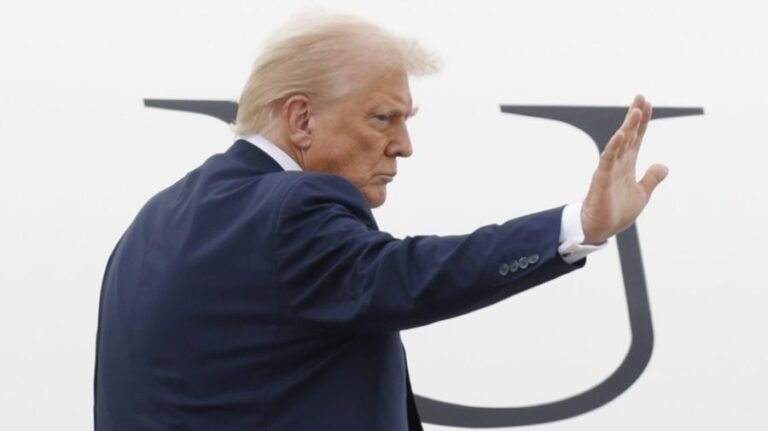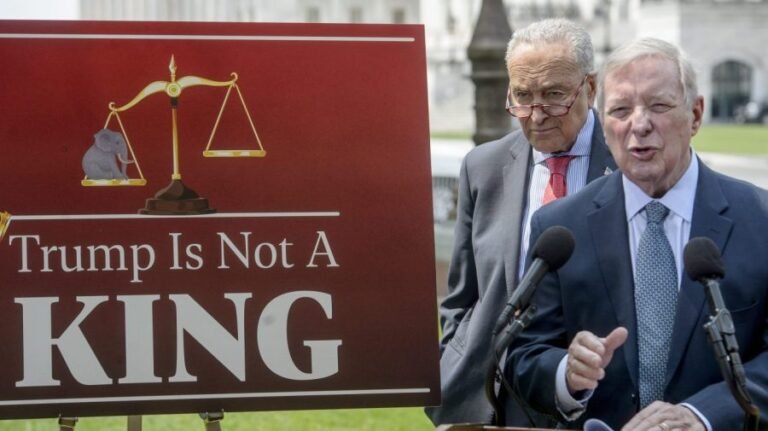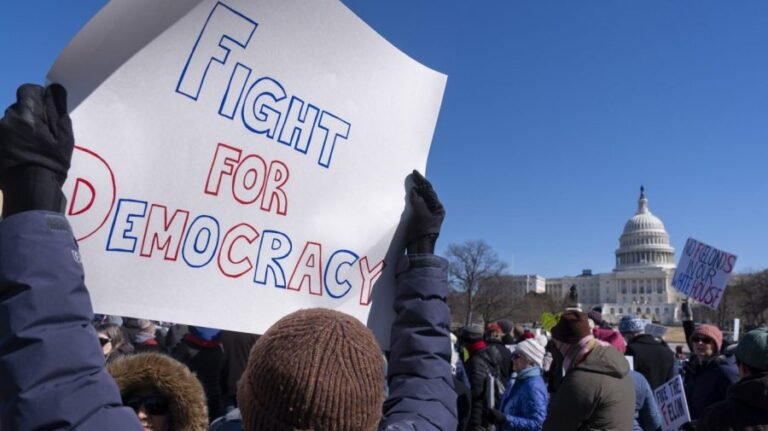
The U.S. added only 73,000 jobs in July and the unemployment rate stayed flat at 4.2 percent, according to data released Friday by the Labor Department.
The July jobs report showed the labor market stalling out as consumers and businesses navigated President Trump’s ever-evolving trade policies and steep new tariffs.
The report came in well below the expectations of economists, most of whom projected job gains of at least 100,000 in July, according to consensus estimates.
Job growth in May and June was also far lower than first reported, according to the Labor Department, which shaved 258,000 jobs off of its past two reports.
The U.S. only added 19,000 jobs in May compared to an initial report of 144,000, and only 14,000 in June after an initial report of 147,000.
Some economists were predicting a dip as investment and business sentiment resulting from trade uncertainties has languished. Accounting firm EY-Parthenon put the July number at 40,000 jobs earlier this week.
“[The] July jobs report will be payback for June,” Oxford Economics economist Nancy Vanden Houten wrote in a commentary, predicting 90,000 to be added this month.
The healthcare sector led the employment increase, with 73,300 jobs added in July. Retail added 15,700 jobs, hospitality added 5,000, and transportation and warehousing added 3,600.
The manufacturing sector, a focus for Trump in delivering many of his economic policies, lost 11,000 job in July after shedding 15,000 jobs in June.
Professional services jobs were down by 14,000, temp work was down by 4,400, and mining and logging jobs lost 4,000.
Uncertainty about U.S. economic policies has been weighing on businesses, which have been eating the increased costs coming from the tariffs but have also started to pass them along into prices.
The Commerce Department’s personal consumption expenditures price index increased more than expected last month, rising to a 2.6-percent annual increase. The Labor Department’s consumer price index popped to a 2.7-percent annual from a previous reading of 2.4 percent.
Both metrics have been moving away from the Federal Reserve’s target rate of 2-percent inflation in their last two readings.
Businesses have been reporting cautious approaches to hiring in anecdotal surveys.
“Hiring proceeded cautiously in part because of ongoing policy uncertainty,” the Boston Fed reported in the central bank’s latest beige book.
Businesses are also increasingly adopting artificial intelligence in the workplace, which is affecting employment conditions.
“Multiple other business contacts reported increased use of artificial intelligence (AI), with one contact saying AI replaced some call center employees, and another contact noting how AI led to a reduction in accounting jobs,” the Philadelphia Fed reported.
U.S. gross domestic product expanded by a sizeable 3 percent in the second quarter after contracting in the first, but this was in large part due to trade irregularities stemming from tariffs.
Second-quarter final purchases increased by a more modest 1.2 percent, the Commerce Department reported this week.
Fed Chair Jerome Powell has described growth as having moderated. The Fed is projecting 1.4 percent growth for this year, down from a robust 2.8 percent last year.
Weakening economic metrics are likely to fuel Trump’s pressure campaign on the Fed for rate cuts. Trump has been telling the Fed to resume cuts for months.
The Fed held overnight rates steady between 4.25 and 4.5 percent this week, though two Fed governors took the rare step of dissenting from the decision.
Many had viewed those dissents as being political in nature, but Friday’s weaker jobs print backs up the view that the economic conditions are weakening and could use support.
Updated at 9:15 a.m. EDT


